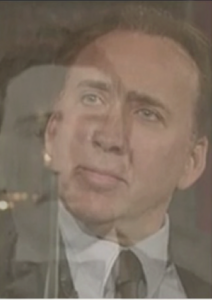“. . . he must, as is often the case with children, re-enact under unconscious compulsion the unlived lives of his parents.” – C.G. Jung
With this article, Pedro Mendes continues his inquiry into type falsification, this time delving into the slippery and intriguing question of the parent’s unlived life and its unconscious effects on the choices of the progeny. As always, we welcome your comments and suggestions.
Falsification and the Un-lived Life
 As stated in the previous article, we call “falsification of type” the development of some typological attitudes that allow the creation of an adaptive functional persona, through the repression of our “natural” gifts. This adaptive persona is developed for the sake of acceptance and adaptation to different environmental contexts.
As stated in the previous article, we call “falsification of type” the development of some typological attitudes that allow the creation of an adaptive functional persona, through the repression of our “natural” gifts. This adaptive persona is developed for the sake of acceptance and adaptation to different environmental contexts.
Our psychological type is a combination of some composite attitudes; to better understand how relevant are our gifts in our psychic economy, let’s look closely at Jung’s definition of attitude:
“Attitude is a readiness of the psyche to act or react in a certain way… [it is] an a priori orientation to a definite thing, no matter whether this be represented in consciousness or not” (CW 6, par. 687)
Using a very pragmatic example, let’s think about our dominant hand. I’m left-handed and at school I could always use my left hand to write and paint. But one or two generations before in Portugal, most teachers in primary school forced children to write with the right hand–it was what we can call a social norm based on the normative principle of the majority, independent of their natural ability. Many left-handed men and women had to adapt to the “right-hand” culture, learning how to write with their right hands, contradicting their natural “motor” orientation.
As it happens with motor skills, it also often happens with psychological type: The falsification of type might be functional–we might have accustomed ourselves to the “false type” being able to make great things with it–but it is always a “psychic violation”.
Sometimes a particular way to behave, act or make choices was clearly determined by the perceptible attitudes and behaviors of the caretakers, or objectively taught by them. In those cases, later in life, it is easier to identify similarities between one’s adaptive persona and some patterns of behavior born from these past experiences and relationships.
But sometimes the demands are more subtle, deriving from unconscious family dynamics; then they are much more difficult to trace.
“. . . he must, as is often the case with children, re-enact under unconscious compulsion the unlived lives of his parents.” (CW 6, par. 307)
When born from unconscious family dynamics, the parents (or caregivers) are overly identified with a certain persona–social, religious, professional, etc.–trying to be perceived in a certain way, sacrificing dreams, personal projects and desires in order to create and maintain a certain perception for themselves and others.
The children might feel unconsciously driven and forced to be what their parents could not be, sacrificing and compromising their own personal fate. Their drive to compensate for the parents’ unlived life is not openly expressed or demanded, so the children naturally feel that they are following their own path. Only later, after achieving the sought goals of this life, some painful although useful “neurotic symptoms” such as anxiety, depression, or lack of satisfaction will show the need for an encounter with the deeper Self, where the natural gifts and potential is revealed.
Sometimes it is difficult to realize one’s natural gifts, due to an over-identification with an adaptive persona. And a person might be extremely good and skilled with “false gifts” since they were trained and developed over a long time.
The way to encountering the deeper Self and ones natural gifts is not necessarily thinking about what one is good at, but rather noticing what brings enjoyment, meaningfulness, abiding pleasure, ease and peace. Each of us knows, at a deep level, what brings those qualities, independent of how much space and time they have in our lives. They are qualities of being, not qualities born from living falsely.
